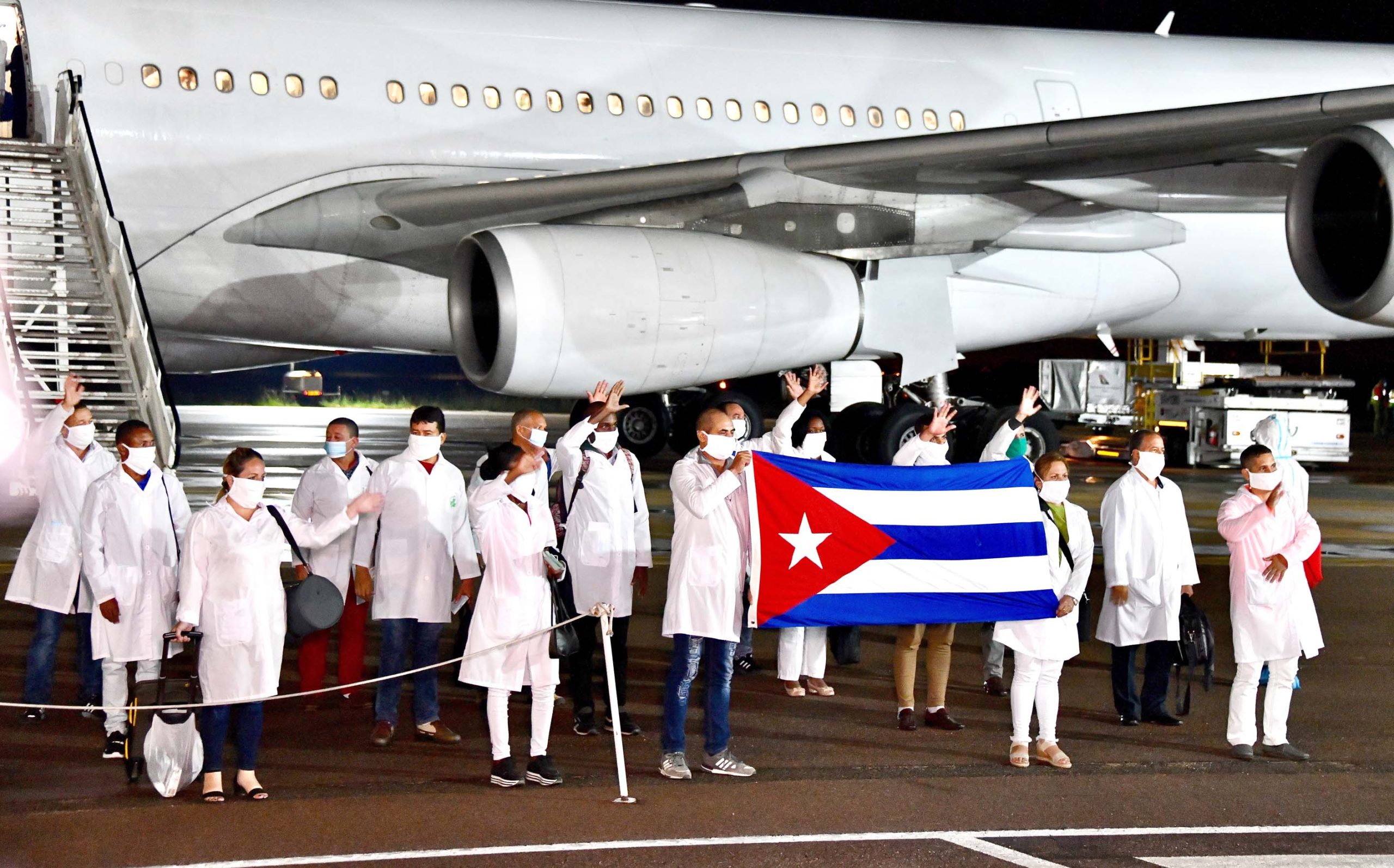Throughout the COVID-19 pandemic, and for much of its history, Cuba has consistently been somewhat of an anomaly among Latin American countries. Since its revolution, the small island nation’s healthcare has continued to thrive ahead of many countries nominally considered developed, despite hardship due to an enduring embargo by the United States.
The health sector of Cuba is widely recognized as being a massive success in spite of the challenges faced by the embargo. Cuba focuses heavily on preventative healthcare and, in the past and present, has been at the forefront of health crises and medical research. Notable examples include the fight against polio and cancer treatment. Cuba also has the highest number of physicians per capita in the entire world, with nearly 9 doctors per 1,000 people in 2018 as opposed to less than 3 doctors per 1,000 people in the United States around the same year.
For much of 2020, while most surrounding countries saw COVID-19 cases and deaths soar, Cuba remained almost completely untouched by the virus. It was not until November, when the island began the process of opening its borders, that cases started to rise. With this spike, it became apparent that relying on current institutions to fight the pandemic was not going to be enough. Vaccine acquisition quickly became the paramount concern for the government. However, instead of relying on obtaining vaccines from wealthier countries, as the rest of Latin America did, Cuba opted to develop its own vaccine.
Rather than reaching out to massive pharmaceutical companies, the Cuban biotechnology sector set to work on developing its own vaccine. Although, at first, this move was met with criticism, the gamble seems to have been a success. With the development of not one but five vaccine candidates in the works, two of these have made it through Phase III (efficacy) trials. First, the Abdala vaccine, which takes its name from a patriotic drama written by the Cuban national hero José Marti, is reported by the Center for State Control of Medicines, Equipment, and Medical Devices (CECMED) to have an efficacy of 92% after three doses. The Abdala vaccine has received emergency authorization in Cuba and a number of countries, including Vietnam and Venezuela. The second of these vaccines, Soberana 02, takes its name from the Spanish word for “sovereign” and has an efficacy of 91%, when combined with the booster Soberana Plus, according to the Cuban biotechnology organization, BioCubaFarma. Both of these vaccines are protein subunit vaccines. Notably, these types of vaccines are cheap, easily mass-produced, and do not require the extreme refrigeration that other vaccines, such as Pfizer and Moderna, need.
Despite the reported success of these vaccines, it has been met with some skepticism around the globe including in places that generally have favourable relations with Cuba, like Venezuela. This is due to the full results not yet being submitted to the World Health Organization (WHO) and thus has not yet received WHO authorization. However, there are plans for the Abdala results to be submitted for WHO authorization now that CECMED has granted it emergency authorization. As of now, 86% of the Cuban population has received at least one dose, with 59% being fully vaccinated. The government aims to reach “full immunization” by the end of the year, in doing so, it will have become the first, and likely only, country to immunize its entire population with its own vaccines.
Due to the immense number of physicians at the Cuban government’s disposal, so-called “medical internationalism” has become a key component of the country’s foreign policy and diplomacy. Since the July 26th Revolution, Cuba has established a program involving sending medical personnel overseas to nations in need as well as bringing foreign students into Cuba to receive medical training. Cuba alone has sent more medical personnel to nations in the Global South than every G8 country combined. In the midst of the pandemic, Cuba sent 2000 physicians to places badly affected, such as Italy, to aid in COVID recovery.
In line with its tradition of medical internationalism, Cuba is now preparing to distribute its vaccines to countries that have been struggling during the pandemic. Vietnam, Venezuela, and Nicaragua have already granted the Abdala vaccine emergency authorization. Iran and Nicaragua have both also given emergency authorization to Soberana 02. A number of other countries are also set to discuss potential deals with Cuba. For all the nations that were unable to purchase vaccines from large pharmaceutical companies, the Cuban vaccines represent a ray of hope.
Edited by Robyn Matthews
Alexander Morris-Schwarz is a third-year student at McGill University where he is majoring in Political Science with a minor in Communication Studies. Alexander is currently a staff writer for Catalyst and he is interested in international relations and imperialism.

